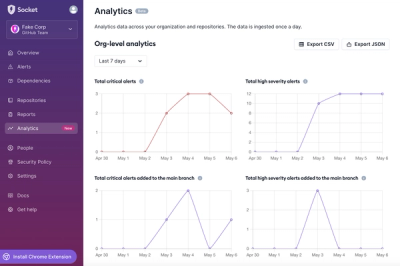

Minio Module for Nest framework




Description
This's a nest-minio module for Nest.
This quickstart guide will show you how to install the client SDK and execute an example JavaScript program. For a complete list of APIs and examples, please take a look at the JavaScript Client API Reference documentation.
This document assumes that you have a working nodejs setup in place.
Installation
$ npm i --save nestjs-minio
Initialize MinIO Client
You need five items in order to connect to MinIO object storage server.
| Params | Description |
|---|
| endPoint | URL to object storage service. |
| port | TCP/IP port number. This input is optional. Default value set to 80 for HTTP and 443 for HTTPs. |
| accessKey | Access key is like user ID that uniquely identifies your account. |
| secretKey | Secret key is the password to your account. |
| useSSL | Set this value to 'true' to enable secure (HTTPS) access |
Provide the credentials for minio module by importing it as :
import { Module } from '@nestjs/common';
import { NestMinioClientController } from './nest-minio-client.controller';
import { NestMinioModule } from '../nest-minio.module';
@Module({
controllers: [NestMinioClientController],
imports: [
NestMinioModule.register(
isGlobal: true,
{
endPoint: 'play.min.io',
port: 9000,
useSSL: true,
accessKey: 'Q3AM3UQ867SPQQA43P2F',
secretKey: 'zuf+tfteSlswRu7BJ86wekitnifILbZam1KYY3TG',
}),
],
})
export class NestMinioClientModule {}
Then you can use it in the controller or service by injecting it in the controller as:
constructor(@Inject(MINIO_CONNECTION) private readonly minioClient) {}
Quick Start Example - File Uploader
This example program connects to an object storage server, makes a bucket on the server and then uploads a file to the bucket.
We will use the MinIO server running at https://play.min.io in this example. Feel free to use this service for testing and development. Access credentials shown in this example are open to the public.
import { Controller, Get, Inject } from '@nestjs/common';
import { MINIO_CONNECTION } from '../constants';
import {Client, InjectMinio} from 'minio';
@Controller()
export class NestMinioClientController {
constructor(@Inject(MINIO_CONNECTION) private readonly minioClient: Client) {}
@Get()
index() {
const file = '/tmp/app.zip';
const metaData = {
'Content-Type': 'application/octet-stream',
'X-Amz-Meta-Testing': 1234,
example: 5678,
};
this.minioClient.fPutObject(
'europetripxxx3',
'app.zip',
file,
metaData,
function(err, etag) {
if (err) {
return console.log(err);
}
console.log('File uploaded successfully.');
},
);
}
}









